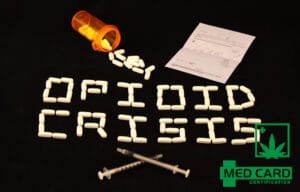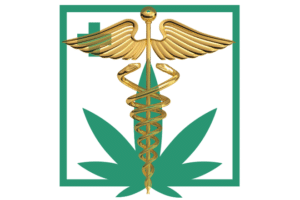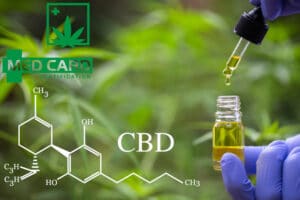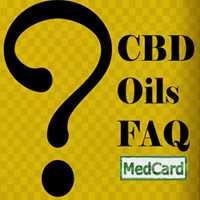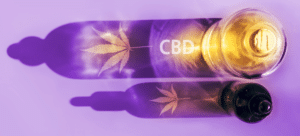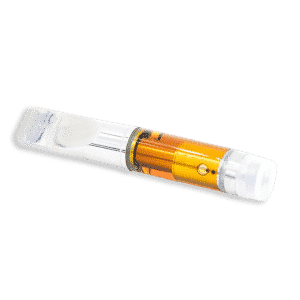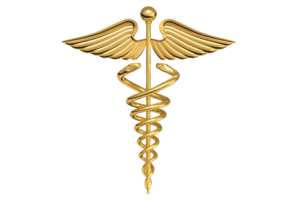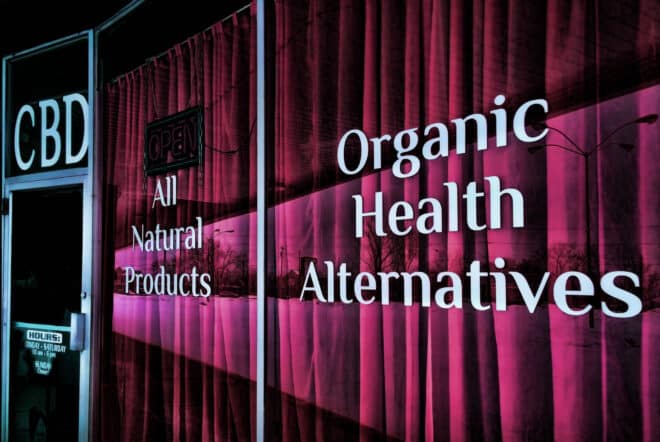
CBD In Arkansas – Balancing Wellness and Synergy
In the heart of the Natural State, Arkansas residents are really warming up to weed. Their medical program, which passed in 2016, makes it easy for medical patients to get their hands on legal cannabis. However, it comes with quite a few catches. The program is pretty strict, and qualifying for a card involves making sure you have a pretty debilitating condition.
If you don’t qualify, what are you to do? Don’t worry— there are quite a few exciting alternatives to explore in Arkansas. Below we’re diving into the beautiful world of the CBD and hemp stores found all over the state, what makes them great, and the kinds of products they carry that might even be more therapeutic than medical THC itself. If you’re not interested in getting a MedCard, this one’s for you.
The Rise of CBD and Hemp Stores
Hemp stores have exploded in popularity all over the country after hemp was legalized in 2018 with the Farm Bill. Hemp stores have special federal permissions that allow them to offer hemp-derived products.
However, there really aren’t many differences between cannabis plants and hemp plants. Cannabis and hemp are the exact same plant. However, hemp is classified thanks to its THC content. Per the Farm Bill, hemp is a plant that contains less than 0.3% THC by dry weight. Plants that contain more than that are called cannabis, and they’re highly regulated.
More or less, the law made it so that hemp plants and products made from hemp—like topicals, tinctures, edibles, smokable flower, vapes, etc— were legal and able to be sold freely with few regulations, while cannabis plants and products are highly regulated and only available at licensed dispensaries.
While it sounds like a great thing, making it possible to get hemp and CBD products without a medical card or any special licensing, it also created quite a few challenges. The verbiage in the original laws was very nebulous. More or less, anything that contained less than 0.3% delta-9 THC by dry weight could be sold freely, and any hemp-derived cannabinoids were also on the table.
Legal Loopholes
The problem is that delta-9 THC (a Schedule I substance) can also be extracted from hemp. Processing companies in the hemp industry were making all sorts of legal-loophole gummies and extracts with the real delta-9 THC simply because they came from hemp instead of cannabis, and the final product still only contained 0.3% THC by dry weight.
It also bred a lot of innovation within the industry. Scientists and processors found that hemp-derived cannabinoids like CBD could be synthesized into THC alternatives like delta-8 THC, delta-10 THC, and forms of THC that definitely get people high. These products could be purchased like any other hemp product, but they could get you high and be sold to anyone 21 or older. Many states currently have a lot of hemp shops operating this way, with all sorts of hemp-derived products on their shelves, such as HHC-infused beverages, delta-9 THC-infused gummies, delta-8 vape cartridges, THCp concentrates, and smokeable THCa flower.
The Ban on THC Alternatives
The DEA, the FDA, and many other states have made THC alternatives out to be a public health crisis. In May, Arkansas took the decisive step of prohibiting specific hemp-derived cannabinoids, including delta-8 THC, delta-9, delta-6a, delta-10, and delta-10a. These cannabinoids have been reclassified as Schedule VI drugs in the state because they could definitely be dangerous for several reasons:
- Lack of Regulation: Unlike CBD and other natural cannabinoids, which have gained recognition for their potential therapeutic potential, these banned THC alternatives have not undergone the same level of scrutiny and regulation. They don’t have to be lab-tested, and the industry is still unclear with the best practices involved with monitoring and managing these products. This lack of oversight can lead to inconsistencies in product quality and safety.
- Psychoactive Effects: Some of these banned compounds, like all of the THC alternatives, including delta-8 THC, make you high. These products being so easily accessible is dangerous for people driving or being safe in the workplace.
- Uncertain Health Effects: The long-term health effects of these THC alternatives are not well-understood, which makes their use a potential health risk. Most are fully synthetic and not found naturally in the hemp plant, so we have no data about their long-term safety.
- Mislabeling and Inaccurate Potency: There have been reports of mislabeling and inaccurate potency in products containing these compounds. Further, testing isn’t always mandatory so you never really know what’s in your product. Some studies have found that hemp-derived products are frequently mislabeled, and potency levels often range drastically from one product to the next. This can lead to unpredictable effects and adverse reactions.
More or less, these products are dangerous. Arkansas took the step only to allow natural hemp and cannabis products to be used and sold in the state, which may help improve regulation and safety in the future.

Hemp Stores Still Reign Supreme
Sure, all of the potentially dangerous hemp products that got you high are illegal in Arkansas now, but that’s not a bad thing. Unlike medical dispensaries, which place a significant focus on THC products, hemp stores in Arkansas showcase products intended for wellness without the high. Here you can find non-intoxicating cannabinoids like CBD, CBN, and CBG that can be enjoyed for their therapeutic effects on their own or alongside the medical cannabis products you buy at dispensaries. Anyone 18 or older can shop at a hemp store and enjoy cannabinoid-infused topicals, tinctures, edibles, vapes, flowers, and more. Below, we’re breaking down the biggest one: CBD.
CBD: The Non-Psychoactive Wellness Solution
CBD is a non-intoxicating compound found in both hemp and marijuana. It won’t cause you to feel high, but evidence suggests that it does some pretty great stuff within your body. While THC is credited with its high-inducing therapeutic effects, CBD isn’t something you necessarily feel, but you definitely notice.
It works by interacting with your body’s Endocannabinoid System (ECS), much like THC does. The ECS is a complex network of receptors and molecules found throughout the body that plays a crucial role in maintaining balance and harmony within the body’s various systems, including the nervous, immune, and digestive systems.
Evidence suggests that CBD helps to modulate the ECS, which in turn helps it to keep you balanced more effectively. It doesn’t directly bind to the receptors like THC does but instead influences them indirectly. CBD encourages the ECS to produce more of your natural endocannabinoids, helping to regulate various physiological functions and maintain balance.
Potential Benefits of CBD
However, research suggests that CBD also offers an array of potential health benefits on its own, including:
- Pain Management: CBD’s anti-inflammatory properties may help alleviate pain, offering potential relief to those with conditions like arthritis or fibromyalgia.
- Anxiety and Stress Relief: CBD is known for its potential anxiety-reducing effects, promoting relaxation without the intoxicating effects of THC.
- Improved Sleep: Many individuals have found that CBD might improve sleep quality by balancing the ECS (which helps keep your natural sleeping and waking cycle balanced). By potentially reducing pain and anxiety, it may also help reduce feelings of insomnia.
- Anti-Inflammatory Effects: Evidence suggests that CBD may help reduce inflammation and oxidative stress, potentially benefiting those with various inflammatory conditions.
- Potential Epilepsy Treatment: The FDA recently approved a form of inhalable CBD to be used for seizures. While further study is still needed, evidence suggests that CBD may help decrease the frequency and severity of seizures.
CBD's Interaction with THC: The Entourage Effect
Evidence also suggests that CBD works well with other cannabinoids, making it a potentially great ally for those enjoying medical marijuana, but looking for more therapeutic effects. When CBD and THC are used together, these two cannabinoids create what is known as the “entourage effect.” This synergistic relationship enhances the therapeutic potential of both compounds.
CBD might also mellow out the psychoactive high produced by THC, reducing anxiety and paranoia that some users may experience when taking THC alone. Simultaneously, it might amplify the positive effects of THC, such as pain relief and relaxation. This delicate balance between CBD and THC allows for a more controlled and well-rounded experience, making medical marijuana a safer and more practical option for patients.
Distinguishing CBD: Full-Spectrum, Broad-Spectrum, and Isolate
When you visit a CBD store in Arkansas, you’ll usually find three types of products available: full-spectrum, broad-spectrum, or isolates.
- Full-Spectrum CBD: Full-spectrum CBD contains a wide range of cannabinoids, including THC (but at levels below the 0.3% legal limit), terpenes, and other beneficial compounds found in the hemp plant. This variety harnesses the entourage effect, offering a comprehensive spectrum of wellness benefits, including trace amounts of THC you can’t feel. However, full-spectrum CBD products will still show up on a drug test since they contain THC.
- Broad-Spectrum CBD: Broad-spectrum CBD retains most of the cannabinoids and terpenes found in full-spectrum CBD but goes through an extra step in the refinement process that removes THC entirely. This is an ideal choice for those who want to avoid any trace of THC while benefiting from other hemp-derived compounds that may boost the effects of CBD in the entourage effect.
- CBD Isolate: CBD isolate is the purest form of CBD, containing 99% pure CBD with no other cannabinoids or terpenes. It provides the benefits of CBD without any other hemp-derived compounds, making it a suitable option for those who want CBD in its most concentrated form. However, isolate products don’t support an entourage effect, so people will likely need to take more isolate CBD compared to full or broad-spectrum CBD to feel the same effects.
Other Hemp Cannabinoids at Arkansas CBD Stores
In addition to CBD and THC, the hemp plant contains a myriad of other minor cannabinoids that support the entourage effect, each with its unique properties and potential benefits. Many products you find on the shelves at a CBD store in Arkansas contain these cannabinoids, especially if they’re full or broad spectrum. These cannabinoids offer their own potential benefits and are potentially amplified by the presence of other cannabinoids like THC and CBD.
- CBG (Cannabigerol): Known for its potential as an anti-inflammatory and neuroprotectant.
- CBC (Cannabichromene): May have anti-inflammatory and pain-relieving properties.
- CBN (Cannabinol): Often associated with sedative effects, making it potentially useful for sleep.
Final Thoughts
The recent ban on certain THC alternatives in Arkansas is, in many ways, a positive development. It reinforces the importance of natural hemp-derived cannabinoids like CBD in supporting holistic wellness. CBD provides a legal and accessible avenue for those seeking relief from various health concerns, whether on its own or as part of a medical marijuana regimen.
That said, if the THC-alternative ban took away your access to THC, now is a great time to get your medical card. Visit us at MedCard to meet with a licensed Arkansas physician and get your application started. In the meantime, start with CBD and continue enjoying it long after you get approved for your card for the best possible results.


